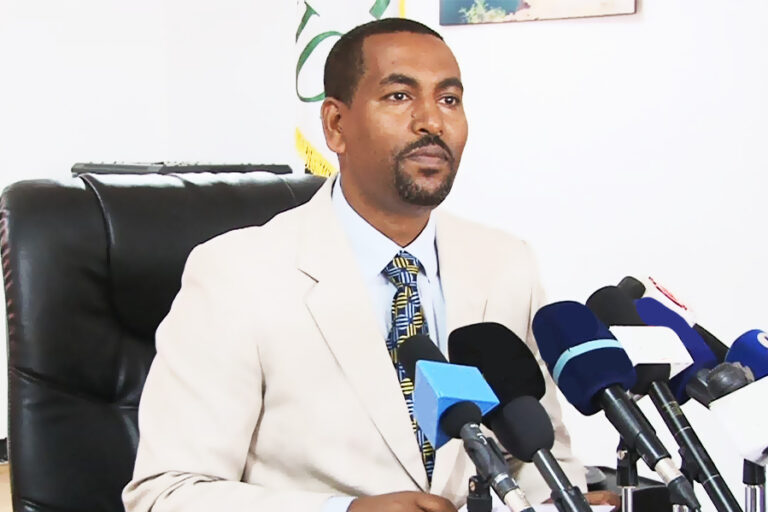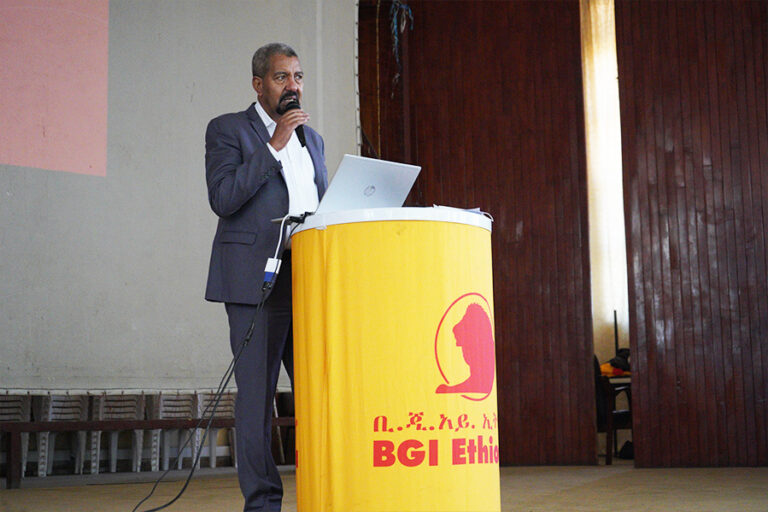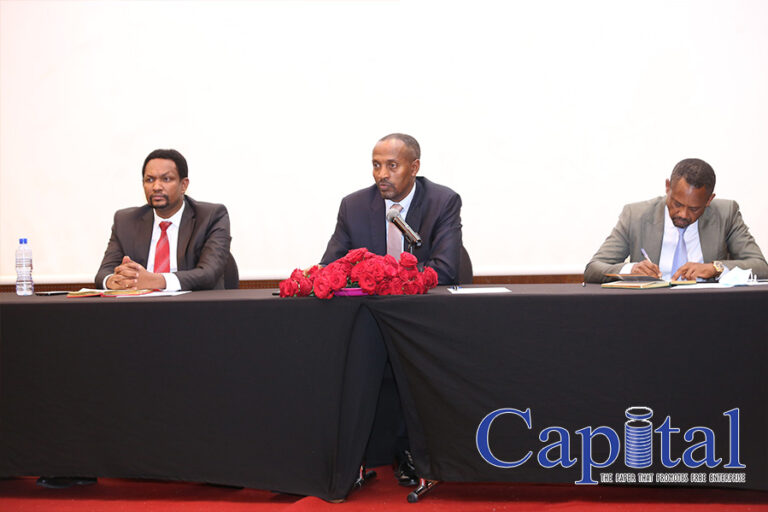With all the dire situations in the country, Ethiopian Electric Power (EEP) discloses that in a positive light most of the mega projects are running as per projection. At the half year mark, the energy service export has reeled in over USD 46 million with no incidence of nationwide blackout being reported.
Moges Mekonnen, Public relation head of EEP, said that despite challenges popping in different corners of the country, mainly on the northern part of Ethiopia, the power generation entity has recorded smooth running of its mega projects.
“Our big projects that are being undertaken in different parts of the country are running without any halt. For instance, the GERD is running as per schedule, similar to Koysha hydro-electric project whilst government on its end has given required attention and support,” he told Capital.
Moges likewise called on the public to continue accelerating its moral and financial support for projects, saying, “for instance, currently GERD is at 84.2 percent completion, thus the public should continue their contribution aggressively since the project is on the early generation work stage.”
“Our concern on delay of projects is at the sites located in Amhara, Afar and Tigray,” he added.
Projects like Bahir Dar-Woldya-Komblocha 400 kv transmission line, which is 85 per cent accomplished, has been looted by the terrorist group as they expanded their territory through aggression to Amhara region.
Similarly, the Mekele-Dallol transmission line project that stretches to Semera-Afdera has fully been stopped.
Because of the aggression, 1.6 billion birr worth of damages were incurred in Amhara and Afar regions, while the infrastructure status at Tigray and some areas in Afar where the terrorist group relaunched its aggression is not known.
In the first six months of the budget year EEP has generated 7,673 GWh energy which is 84 percent of the target. “The generation projection was 9, 080 GWh, while some part of the areas in Afar and Amhara were out of service because of the aggression, thus our generation was reduced for the sake of power saving,” Moges explains.
Similarly, the generation was reduced due to the two power stations operating in Tigray not being included in the report for the stated period.
In the first half year USD 46.4 million was earned from power export to Djibouti and Sudan. The revenue earned from the export has increased by ten percent compared with the same period of last year.
“From energy export to Djibouti increased by 10 percent to USD 26.9 million compared with the same period of last year,” Moges explained.
Ethiopia is also on the process to embark power sales to southern neighbor, Kenya.
Moges said that in the budget year, EEP has projected to earn USD 138 million from service export of the three countries, while the export to Kenya is yet to commence.
“If the export to Kenya commences in the coming months the earnings will be expanded,” he explained.
Last year, USD 90.5 million was secured from energy export.
The Public Relation head stated that in the past six month it has achieved massive success in generation and operation, “for instance in the last budget year, during the first half, two nationwide blackouts had occurred which has not transpired during this period.”
EEP reveals massive success in generation, operation of power
Ashewa Technology launches project to benefit youth
Ashewa Technology Solution SC launches a seven million birr project that is set to benefit 500 youths.
The digital commerce and learning platform will see the youth creating market lineage through the digital scheme that it facilitates.
Ashewa Tech, being a solutions company that houses an e-commerce platform where buyers and sellers converge, will enable the beneficiaries to sell their commodities and services on its platform, under the new initiative. Daniel Bekele, General Manager of Ashewa, to this end explained that the company is designing and implementing different projects that shall benefit the youth.
BGI grooms future prospects through its program
BGI Ethiopia launched the second BGI XP’s internship program on Tuesday, February 15, 2022, at the premises of Addis Ababa university’s 6kilo campus.
Through the program students will be selected from the 5 campuses of Addis Ababa University based on their academic achievement which is followed by various assessments.
“Passing through these assessments increases students’ confidence. During their internship, students will find real-life experiences and opportunities related to their careers, ultimately gaining the ability to decide on their future,” said officials from BGI.
During the course the day, BGI Ethiopia introduced the program to the students at the 6kilo campus and explained BGI XP’s nature and the requirements set to participate in the program. More than 500 students attended the orientation while 50 up to 60 students are expected to be part of the internship. Through this program, BGI Ethiopia believes that it will create talented young professionals who; are respectful of the institution’s values, have a good understanding of the organization’s work culture, have multi-faceted business interests, and are passionate about working towards positively changing the company.
The objective of the project is curved in such a way that allows students to build their future careers in the institute. For example, it will help students build relationships with professionals and staff at different levels whilst gaining valuable experience in teamwork. Furthermore, it will enable them acquire problem-solving skills and to learn the basic ways of effectively communicating in the workplace, which are essentials to getting employed and staying active and proficient in today’s job competition. A year ago BGI Ethiopia had signed a memorandum of understanding with Addis Ababa University, to implement the BGI XP internship Program. Accordingly, actions were taken. The BGI Ethiopia Internship Program will be held for two months in the summer, involving students from 2nd -year university students. Students who have been selected to participate in this internship program will receive a stipend from the institution during the internship month.
A year ago BGI Ethiopia had signed a memorandum of understanding with Addis Ababa University, to implement the BGI XP internship Program. Accordingly, actions were taken. The BGI Ethiopia Internship Program will be held for two months in the summer, involving students from 2nd -year university students. Students who have been selected to participate in this internship program will receive a stipend from the institution during the internship month.
Beefing military forces needs with local supply
Ethiopia projects to locally source the supply needs of its security force which will ultimately lead to job expansion and benefits.
Ministry of Industry (MoI) with its relevant offices and officials from the federal and regional security bodies have discussed the various aspects in the project that will see local manufacturers boosting the quality and ample supply of military fatigue, footwear and military purpose tactical belts for the security apparatus.
During the meeting held on Tuesday February 15, Melaku Alebel, Minister of MoI, said that there are opportunities out there that need to be tapped.
He said that as per the required standard and discipline of the sector, the battledress must be prepared and produce unlike other products. “Manufacturers should know that,” he remarked.
On the discussion Dagnachew Shiferaw, Director General of Leather Industry Development Institute, said that on the latest military operation, Ethiopian footwear and leather goods manufacturers were able to supply almost all of the military footwear and heavy-duty belts for the law enforcement body.
One of the senior staff of the Ethiopian Defense Force (EDF), who attended the meeting, appreciated the quality of the footwear which are locally produced and supplied to the military.
“My comments are only on the upper leather part of the shoes which ought to receive improvements. Otherwise, the sole and other parts are as per the required standard,” the senior staff of EDF noted whilst appreciating the effort of the local manufacturers.
 So far most of the military fatigue that the Ethiopian security wears is imported, however, it can also be easily replaced by local supply since the manufacturers have ample attention and follow up from relevant bodies like finance and foreign currency for the operation and import of accessories.
So far most of the military fatigue that the Ethiopian security wears is imported, however, it can also be easily replaced by local supply since the manufacturers have ample attention and follow up from relevant bodies like finance and foreign currency for the operation and import of accessories.
The major target of the meeting was creating a linkage between the security body, government offices and manufacturers so as to tap in to the country’s potential of local products rather than allocating foreign currency to import the products.
One of the security officers who attended the meeting stressed that the country has to work on this area strongly since the military force is expanding further in the coming periods.
Ethiopia is exporting USD 114 million worth of textile and garment, while the import is USD 525 million.
Melaku said that the local textile and garment’s industry capacity is very high which can meet the local demand and replace the import. “We have to utilize our capacity to narrow the trade deficit on the sector,” Melaku noted.
Similarly, the country is allocating over a billion dollars to import leather goods including footwear, while the export is about 100 million dollars. However, Dagnachew argued that the local produce, mainly in the shoes sector is highly competitive compared with most of the import goods.
“Awareness creation is crucial to encourage citizens to buy local products, which is competitive in terms of quality and price,” he said.






